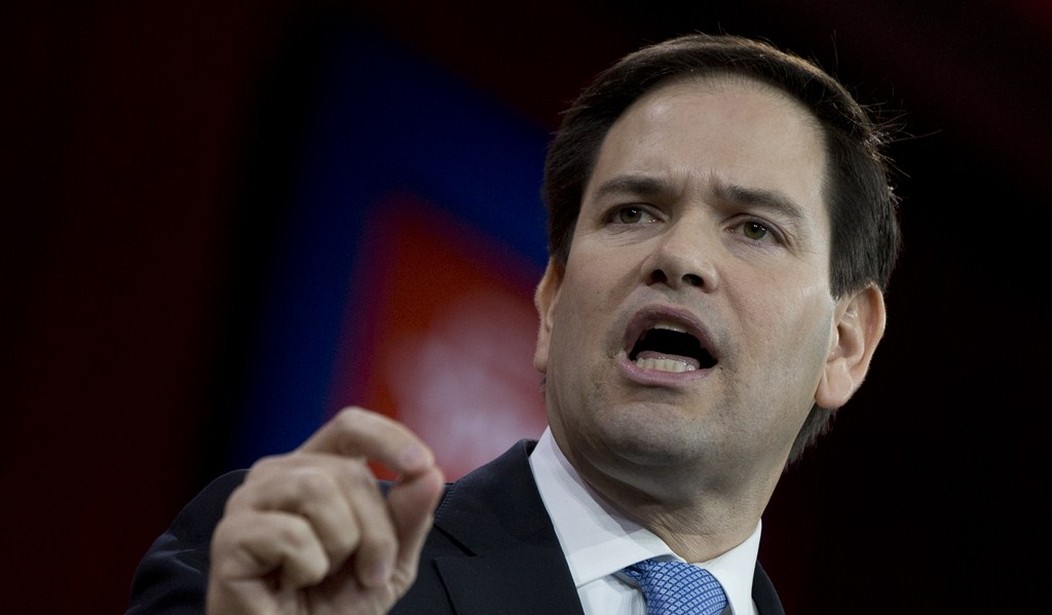It has become conventional wisdom that Republicans are blessed with a talented crowd of potential candidates this cycle. Fine. But here's my case for why only one of them is likely to win the general election.
Forget the triumphalism that followed 2014. It will do the GOP exactly as much good in 2016 as its remarkable success in 2010 did it in 2012. The off-year electorate is different.
Republicans begin the race for 270 Electoral College votes at a structural disadvantage. California, New York, Illinois and other large Democratic states deliver reliable EC votes. In the past six presidential races, Republicans have averaged just 211 electoral votes, while Democrats averaged 327. Among swing states -- Colorado, Florida, Nevada, North Carolina and Virginia -- all are seeing increases in their minority voters and decreases in white voters.
As Republican pollster Whit Ayres explained in The Wall Street Journal, "Groups that form the core of GOP support -- older whites, blue-collar whites, married people and rural residents -- are declining as a proportion of the electorate. Groups that lean Democratic -- minorities, young people and single women -- are growing."
Additionally, the GOP, while highly respected on dealing with terrorism and related matters, is viewed skeptically on whether it "cares about the middle class." A Pew poll found that 60 percent of Americans ascribe this trait to the Democrats, while only 43 percent say as much about Republicans.
Jeb Bush was an excellent conservative governor. He can raise money. He speaks Spanish and is married to a Hispanic. What we cannot measure is how much Bush fatigue would plague him. We know his ties to wealthy donors and his elite pedigree play into the most damaging stereotypes about Republicans. Not saying it's fair, or that his policies wouldn't help the middle class, but it would be foolish to overlook the perception of privilege. Further, assuming Hillary Clinton is the Democratic nominee, running another Bush vitiates the argument that Republicans are the party of reform and the future.
Recommended
Scott Walker is the Republican no one dislikes. His strengths are well known. But he is weak on foreign policy, which is nearly certain to play a much larger role in 2016 than in 2008 or 2012. His fumbling of some simple questions raises worries that he's not tuned to the pitch necessary to solo with the big orchestra.
Marco Rubio doesn't make those kinds of errors. He's been on the national stage for four years, during which time he has distinguished himself not only as the most inspirational speaker in the Republican Party, but also as a serious policy innovator. With Sen. Mike Lee, another tea party senator, he has just proposed a sweeping tax reform that would ease the lot of middle-class families while also promoting growth. He has proposed other reforms that are both substantively solid and politically shrewd -- like forbidding the taxpayer bailouts of insurance companies (the so-called risk corridors) imbedded in Obamacare. He understands the corrupting effects of government expansion, warning that too much government leads to "the inequality between those who can afford to influence government and those who can't."
Rubio has read broadly and thought deeply about the problems America confronts in the 21st century. He was widely criticized for signing onto an immigration reform some caricatured as "amnesty" in 2012, but he has since shifted his emphasis to border security first. Many are unaware that though he is young (the same age as John F. Kennedy in 1960), he is not inexperienced, having served as the Speaker of the Florida House before being elected to the U.S. Senate.
The urge to stoop to identity politics makes some conservatives (including this one) gag. But Rubio is the very best kind of immigrant success story: the son of a bartender and a maid who says he can never repay what America has done for him. His family's Cuban heritage (he is fluent in Spanish) has made him especially sensitive to the thugs and tyrants of the world, including those in Tehran. His foreign policy would be assertively Reaganite.
Rubio has one more huge advantage as a candidate: likability. He has a sense of humor and can be self-deprecating. The conservative message he carries is wrapped in sincerity, uplift and warmth, not scowls and censure. He has precisely the combination of qualities that the Republican Party and the country need right now.
























Join the conversation as a VIP Member